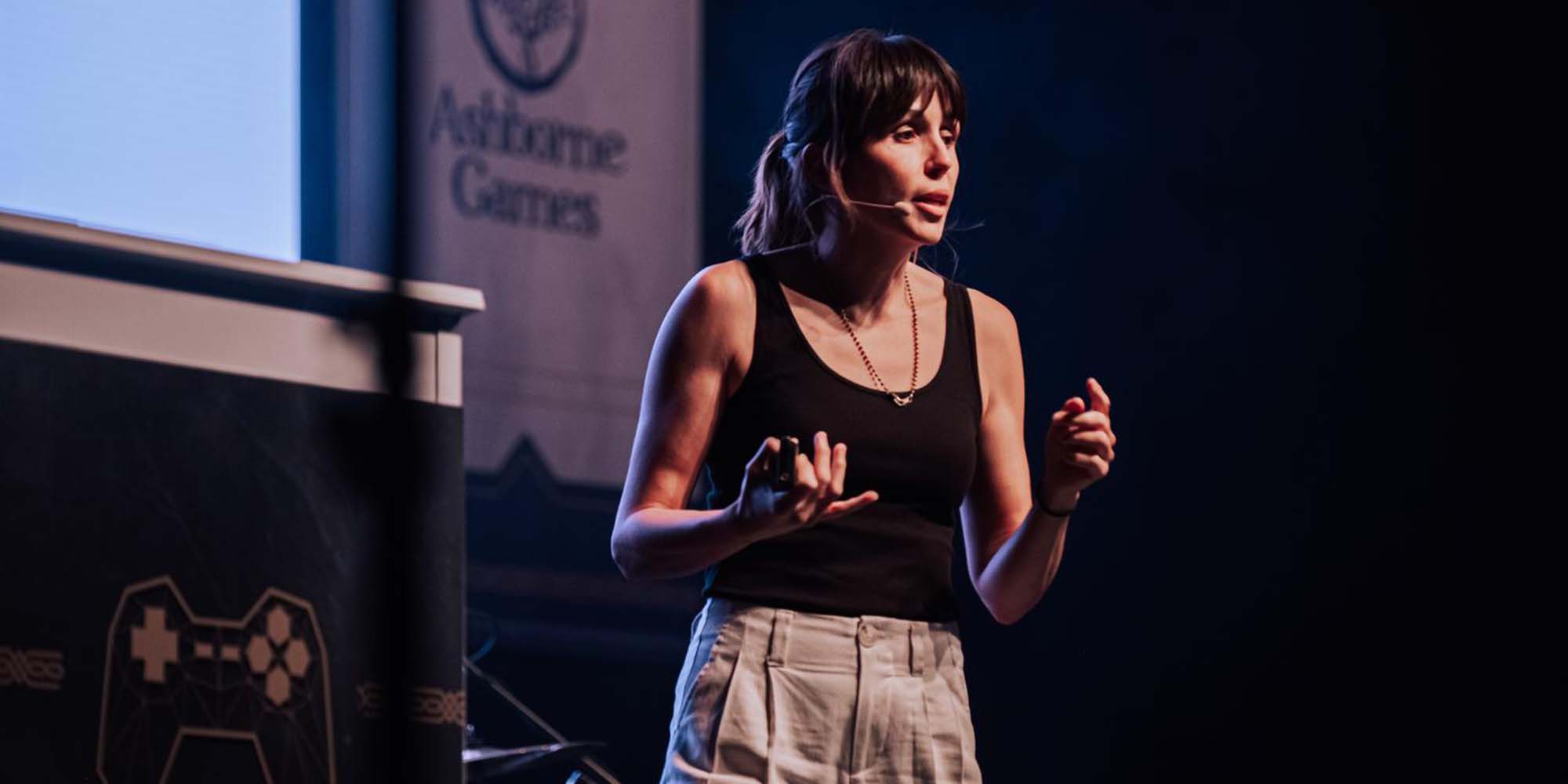New mentorship programme provides ITU graduates with role models in the games industry
A new women’s mentorship programme for students in ITU’s Games MSc aims to provide graduating students with role models in the games industry. We spoke to Games student Saskia Joanna Rauhut and her mentor, Executive Technical Producer at IO Interactive, Cristina Vega, about the importance of representation and career paths in the industry.
Digital Design DepartmentEducationcomputer gamesdiversitycareer
Written 18 January, 2024 09:25 by Theis Duelund Jensen
Like its international counterpart, the Danish games industry is growing rapidly. According to the Danish Producers’ Association, in 2020 the industry had a turnover of more than 3.1 billion kroner and an export rate of about 2 billion kroner. Similarly, target audiences have expanded, and gaming has become a popular pastime in close to every demographic.
Even though more and more women play video games a massive gender gap in the industry remains. According to Statista, on a global scale video game players are almost just as likely to be male as female, yet less than a third of game developers are female.
“Mentorship programmes are very relevant. It’s a way to give talented people an extra push, and they enable greater diversity. Diversity is good when it comes to creation and creativity, and studies show that diverse teams perform better.”
Cristina Vega, Executive Technical Producer at IO Interactive
The only way to improve those statistics is by ensuring better gender diversity in the games industry, and that is exactly what a new initiative in IT University of Copenhagen’s MSc in Games programme is poised to do. A new women’s mentorship programme pairs graduating students with mentors in the industry who serve as role models, sounding boards, and pathways to an extended professional network for the women game developers of tomorrow.
Representation matters
One of the students from ITU participating in the mentorship programme is Saskia Joanna Rauhut (who goes by her middle name, Joanna). Joanna Rauhut is graduating this summer. Over the course of her studies, she has gained practical experience in the industry, but according to her, the mentorship programme is a welcome opportunity in a male-dominated field:
“There aren’t that many women in the industry whose example you can model your own career path on, and representation is extremely important. Lots of studies point out that women are more prone to doubting their own abilities than their male colleagues which is only made worse if there’s a toxic atmosphere in the workplace. I think the culture is slowly changing for the better, but getting into the industry is still daunting,” says Joanna Rauhut who initially wanted to work as a developer but has since switched her attention to the role of producer.
“During the first semester here, we worked on a big project where we each applied for different roles. I thought I could try out the producer role, and I discovered that I really liked it. As a producer, you are in touch with every part of the pipeline while also relying on the expertise of others. Seeing a game project come together is really cool.”
In the mentorship programme she has been paired up with Executive Technical Producer at IO Interactive, Cristina Vega – a veteran producer of the games industry and an outspoken advocate for greater inclusion and diversity. Even though, the two so far have only had a few meetings, Joanna Rauhut feels that she has already gained valuable insights:
“She’s definitely someone I can see as a role model. I often take the insights she has provided me with into consideration in my everyday work. It is also nice to experience a woman who is super confident in her role as leader,” says Joanna Rauhut.
Not just for dudes
For Cristina Vega, who has worked in the games industry for more than 20 years, mentoring women who aspire to work in the games industry comes down to a desire to see greater diversity in the industry:
“I’ve participated in a lot of mentorship programmes because I’m tired of feeling like I’m the only woman. I basically want more people in the industry who aren’t 35-year-old dudes,” says Cristina Vega.
“Mentorship programmes are very relevant. It’s a way to give talented people an extra push, and they enable greater diversity. And diversity is important because we all contribute with different ideas and perspectives. It is not just about gender diversity, it’s about all kinds of different backgrounds. Diversity is good when it comes to creation and creativity, and studies show that diverse teams perform better.”

Cristina Vega has mentored women in the games industry for years.
Even though the games industry has become more diverse in recent years, there is still much room for improvement according to Cristina Vega:
“If you look at the numbers and the reports, things aren’t progressing fast enough. Women are still underrepresented. At IO Interactive we have the only game engine in the world that is produced by women. I try to give visibility because role models matter. If other women can see women working with technology in games, they may be able to see a future for themselves in the industry.”
For Joanna Rauhut there is no doubt that the games industry is where she wants to make her career. She dream is to start her own video game company, but after graduation she will be looking to gain some experience working in an established company.
“Cristina has introduced me to people in the industry and helped me expand my network. We’ve had a lot of helpful talks about my trajectory post-graduation, and she has given me a more realistic idea of what the job market is going to be like. I’m really glad that I signed up for the mentorship programme. I can definitely see myself mentoring others in the future.
Theis Duelund Jensen, Press Officer, tel: 2555 0447, email: thej@itu.dk